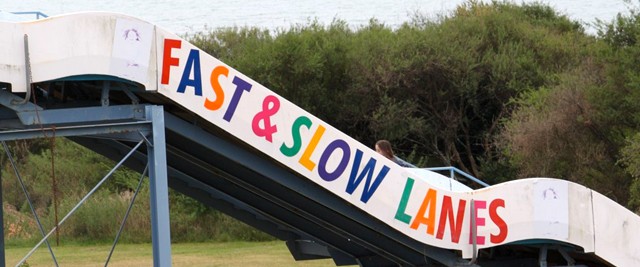
Life in the Fast Lane
Opponents of Net Neutrality often argue that Internet Service Providers need to divide the Internet into fast and slow lanes — providing a fast lane for those who can pay, a slow lane for everyone else — to invest in a fast Internet for all.
But Dr. H. Kenneth Cheng and Dr. Subhajyoti Bandyopadhyay, two researchers at the University of Florida, and Hong Guo of the University of Notre Dame, have a new study that shows the opposite. Without Net Neutrality, the authors conclude, “ISPs actually have less incentive to expand infrastructure.”
Using the well-worn highway analogy for the Internet, the authors explain that ISPs have an incentive to keep the roads, i.e., Internet connections, clogged. “ISPs profit more when the roads are congested,” they write. “[If] traffic is cruising, no one would feel the need to pay for faster service.”
The researchers’ conclusion is simple. In the absence of open Internet rules, ISPs would be able to charge extra for a fast lane and pocket the difference, since they wouldn’t feel motivated to spend that money on infrastructure.“Without Net Neutrality,” the authors write, “ISPs [would] likely be better off and content providers worse off.”
Funny, that’s what we’ve been saying all along.
You can read more about the study here.